The literary wave that followed the arrival of the Windrush generation in the UK wasn’t the beginning of Black British literature by any means, but the anniversary of the arrival of HMT Empire Windrush at Tilbury docks on 21 June 1948 seems like a good moment to celebrate 75 books that have shaped the Black British experience.
Our contributors include historians and musicians, educators and publishers, and their choices cover fiction and nonfiction, poetry and politics. The result is an exhilarating range of stories, from freedman and 18th-century abolitionist Olaudah Equiano to the pilots and stretcher-bearers of the second world war; from pioneering teachers to young pleasure-seekers at dancehall dub nights. The earliest voices of the Windrush generation can be heard in works by Sam Selvon and Beryl Gilroy, alongside more recent writing by Malorie Blackman, Nadifa Mohamed and Roger Robinson.
For me, this selection is a natural extension of the Black history timeline I put together for the Guardian in 2008 at the time of the 60th anniversary of Windrush and the Black literature timeline I created for the British Library in 2021. Hopefully, in reading this you will be able to embark on your own literary journey through the diversity of the Black experience in Britain.
Gaverne Bennett
David Olusoga
Historian and broadcaster
Staying Power: The History of Black People in Britain by Peter Fryer
Although not the first big, sweeping history of the Black presence in Britain, Staying Power was the one that really made an impact. Readily and cheaply available, it was always a book you could find on the shelves of your local bookstore rather than in the university library. Published in 1984, in the aftermath of the early 80s riots, this huge brick of a paperback changed everything. The work of a British journalist who had been at Tilbury docks in June 1948 to report on the arrival of the HMT Windrush, it came with a huge appendix packed with vital documents and a thorough index. The account ranges from the African soldiers who manned the Roman Wall all the way up to the embattled communities of the 1980s. For four decades, Staying Power has been the key access point to a history that most of us knew little about before we opened its pages.
Dark Strangers: A Study of West Indians in London by Sheila Patterson
Today it is more a historical source than a book to read cover to cover. This sociological study of the West Indian community of Brixton in the 1960s explains how that community became almost unthinkingly defined as part of a postwar “colour problem”. Those who might be tempted to read it from cover to cover today are the residents of Brixton, who will struggle to recognise their part of London as it was half a century ago. I was living there when I first read Dark Strangers, back in the 90s, and I was both disturbed and hooked from the first page of the first chapter, entitled Colour Shock and Strangeness.
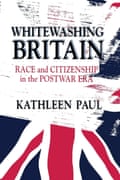
Whitewashing Britain: Race and Citizenship in the Postwar Era by Kathleen Paul
If you want to dig deep into the roots of the Windrush scandal, and discover just how hostile the environment was for postwar Black migrants, this is the place to start. A scholarly deconstruction of two decades of immigration policy, White Washing Britain comprehensively explodes two myths. The first is that Britain’s political elite were forced to pass immigration restrictions in response to racism from below. As Kathleen Paul shows, Britain’s politicians were opposed to Black migration from the very start, and often more so than the people who lived alongside the growing Black communities. The second myth dispatched here is that the Windrush generation were invited to Britain to help postwar rebuilding. They were certainly invited, but by the NHS, London Transport and a host of other industries that were desperate for hard-working educated workers. As the official documents Dr Paul deploys reveal, those within the corridors of power spent the decades after the arrival of the Windrush trying to draft laws that made it harder, not easier, for Black people to settle in Britain.
The Lonely Londoners by Sam Selvon
What must it have been like to have landed at Tilbury docks and set about finding a job and a place to live in the London of the 1950s? How did people from the warmth of the Caribbean cope with the damp and darkness of their first British winter? How did they create communities and support one another through the disorientation of it all and in the face of so much discrimination? Sam Selvon’s Lonely Londoners is perhaps the closest we can get to their experiences. This is a book I have pressed into the hands of friends and acquaintances for years. Sad and poignant but also joyous and hopeful.
Bernardine Evaristo
Novelist
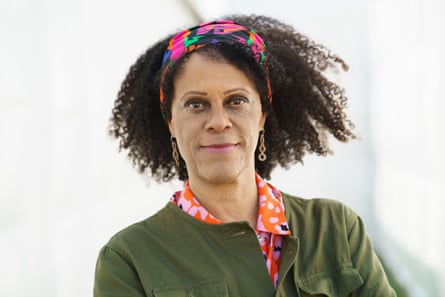
Black England: A Forgotten Georgian History by Gretchen Gerzina
Gerzina’s book vivifies this specific era of British history with great panache. This isn’t a dry book but a colourful and lively account in which real people, both famous and unknown, pulsate with energy and life, and where the past feels dynamic and palpable. The black aspects of British history should be regarded as British history per se, but until that happens, books such as this remind everyone that our roots in this country run deep.
Home Is Not a Place by Johny Pitts and Roger Robinson
This is a groundbreaking book of photographs and poetry about the contemporary black presence in Britain beyond the major cities. It is the result of a pilgrimage, of sorts, whereby these two men travelled around the country seeking out black communities. Pitts’s haunting photographs and Robinson’s exquisite poetry expand and open up the story beyond the more familiar metropolitan and geographical parameters.
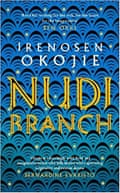
Brit(ish): On Race, Identity and Belonging by Afua Hirsch
The author made a well-earned splash with this book in 2018. It’s a personal, political and challenging account of what it means to be British when you are racialised as Black. Hirsch is a brilliant and fearless intellect who deftly handles the complexity of the issues, describing her own experiences and interrogating British society from necessarily critical angles.
Nudibranch by Irenosen Okojie
Raised in both Nigerian and British cultures, Okojie is one of the most ambitious, original and imaginative writers out there. With her second short-story collection she seals her reputation as someone who creates the most surreal, unpredictable and magical fiction in order to reveal deeper truths.
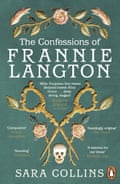
The Confessions of Frannie Langton by Sara Collins
Collins takes the black presence into the gothic genre with her harrowing and riveting debut novel. Ranging from slavery in Jamaica to incarceration in England with interracial queer desire at its heart, the novel raises questions about justice and injustice, good and evil, and white patriarchal power versus black female agency.
Bless the Daughter Raised by Voices in Her Head by Warsan Shire
This stunning debut collection is a kind of poetic treatise on the disenfranchised. Shire’s poems, so many of them memorable, even anthemic, are rooted in family and community, migration and dislocation, girlhood and womanhood. While Shire is Somali-British, which infuses her poetry, her words speak to women’s experiences worldwide.
Colin Grant
Historian and writer
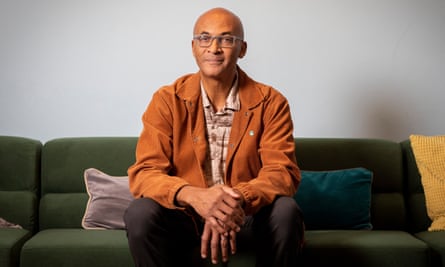
Small Island by Andrea Levy
High-mindedness, valour and duty come together in Small Island. Love and hate stretch across colour and class divisions in this tough but achingly tender romantic tale. Levy’s subtle reflections on the nature of prejudice, laced with humour, illuminate this novel from the hurricane-riven Caribbean to the squalor of bombed-out Britain, in the aftermath of the second world war.
Chick by Hannah Lowe
The British-born poet conjures her gambler, Afro‑Chinese Jamaican father, the eponymous Chick, who boarded the SS Ormonde to Britain in 1947. Lowe is in dialogue with her father in the collection, remembering, when he died, how a ring of old-time West Indians “placed the ace of hearts across your coffin, flowers shaped as dice”.
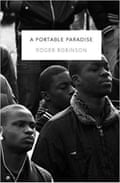
A Jamaican Airman Foresees His Death by Fred D’Aguiar
The British Guyanese author has recalled how – inspired by Yeats – his early 90s verse play, A Jamaican Airman Foresees His Death was written in a “language of yearning expressed by minds and hearts in search of meaning in a frightful world”. It focuses on an idealistic Jamaican gunner for a second world war RAF bomber who spirals into mental decline following Britons’ ingratitude and racial bigotry – a powerful metaphor from the past that speaks to the present.
A Portable Paradise by Roger Robinson
You carry your home with you when you travel, the poet, who was born in east London to Trinidadian parents, intimates in this poignant collection. To read Robinson is to be enveloped by a warmth of empathy and intelligence. A Portable Paradise is renowned for Grace, a praise song to the Caribbean nurse who kept his son and the NHS alive, a poem that elicits tears of remembrance and gratitude.
Mi Revalueshanary Fren by Linton Kwesi Johnson
In this collection the poet and musician, also known as LKJ, pulls no punches. It draws on three decades of work that bears witness to racial conflict, the promotion of allyship, societal change and restorative justice – all rendered with a cool Caribbean elan and reggae beat.
Sara Collins
Novelist
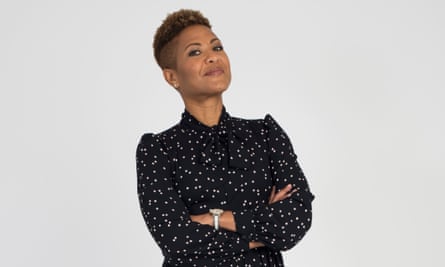
Homecoming: Voices of the Windrush Generation by Colin Grant
Grant’s oral history is a collage of Windrush artefacts and literature, interwoven with testimonies of surviving members of that generation. What I love about this book is that it is underpinned by an urgent need to capture the voices of those pioneering West Indians before their stories disappear – and to wield storytelling as a weapon against the “hostile environment”. It artfully breaks the silence surrounding these unheralded lives and is essential reading for those who wish to know and honour them.
Chan by Hannah Lowe
The SS Ormonde arrived in Liverpool from Jamaica one year before the Windrush. Lowe’s pamphlet Ormonde, included in her 2016 collection Chan, resurrects its passengers with a bracing sense of elegy and an astonishing blend of research and imagination: “We were frontiersmen, we said. / Our god was work. What use was memory?” Each poem is a pearl of insight, strung alongside its companions with devastating effect. I cannot read them without being moved to tears.
The Windrush Betrayal: Exposing the Hostile Environment by Amelia Gentleman
Imagine waking up in the only homeland you’ve ever known to a letter informing you that you’re “illegal”, and “liable to removal” without recourse. In The Windrush Betrayal, Gentleman documents the stories of many of the ordinary people who found themselves trapped in precisely this kind of nightmare due to the “hostile environment”, in the process dismantling the cruel architecture of that policy with a miraculous combination of journalistic skill and persistent, courageous empathy.
David Lammy
Shadow foreign secretary and MP for Tottenham

The Black Jacobins: Toussaint L’Ouverture and the San Domingo Revolution by CLR James
If you went to school in the UK in the 1970s and 80s, you’ll know black figures were absent in history lessons. Napoleon? Sure. Toussaint L’Ouverture? Not so much. The Black Jacobins by the preeminent black historian CLR James illuminates the fascinating story of the Haitian Revolution, the first and only successful slave revolution in history.
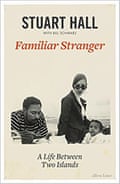
How the West Indian Child Is Made Educationally Sub-normal in the British School System by Bernard Coard
Grenadian author and revolutionary Bernard Coard was writing about institutional racism in education before I was even born. In this book he writes of his experience as a schoolteacher in south London, where he witnessed first-hand the false labelling of black children as having learning disabilities. It’s a seminal study of a major scandal that had its roots in eugenics and white supremacy, a phenomenon with a legacy still felt today.
Familiar Stranger: A Life Between Two Islands by Stuart Hall
Hall ranks among the great cultural thinkers of the 20th century. His memoir offers a poignant exploration of the fragmentation and fluidity of modern societies. It helped me answer the complex questions surrounding identity in an ever-changing world.
My Two Grannies by Floella Benjamin
I read this book to my children when they were younger. It tells the story of a young girl with two grandmothers, one from Trinidad and one from England. People of mixed ethnic groups, such as my kids, are the fastest-growing ethnic group in the country. This story will resonate with many in this expanding community.
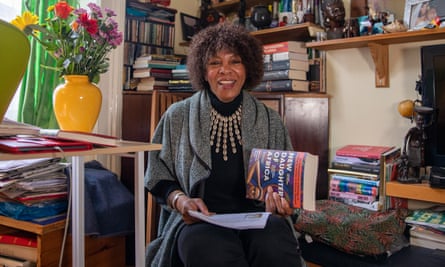
Margaret Busby
Publisher, editor, writer and broadcaster
Poems on Various Subjects, Religious and Moral by Phillis Wheatley
Wheatley (1753-1784) was kidnapped from West Africa and enslaved in America – her first name was taken from the ship that brought her, her surname from that of the Boston family that bought and tutored her. Visiting London aged 20, she became the first African American author of a published book of poetry. Featuring such writers in my 1992 anthology Daughters of Africa, and its 2019 follow-up New Daughters of Africa, was to highlight the creativity that hundreds of women of African descent have demonstrated for centuries, not just decades.
Ethiopia Unbound: Studies in Race Emancipation by JE Casely Hayford
The prominent journalist, lawyer and politician from the Gold Coast set her 1911 novel in England and Africa. As pioneering pan-African fiction, it explores identity and the struggle for emancipation. My own family interactions with the UK began in 1899, when my grandfather GJ Christian was studying law in London, becoming a delegate at the First Pan-African conference held in Westminster Town Hall in July 1900.
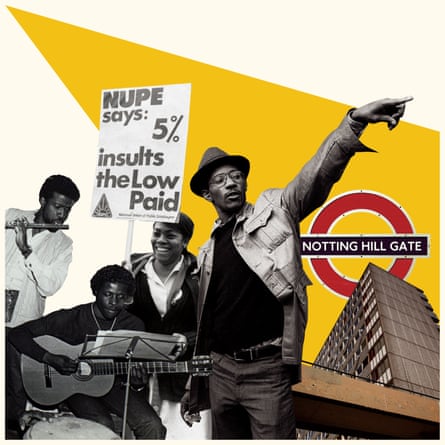
Minty Alley by CLR James
The first novel by a Black Caribbean writer published in England, Minty Alley is about working people living in a “barrack yard” in Port of Spain, Trinidad. James wrote it in 1928, and brought the manuscript with him to the UK in 1932.
In the Castle of My Skin and other works by George Lamming
Whether his novels In the Castle of My Skin (1953), The Emigrants (1954) and Natives of My Person (1972), or his 1960 essay collection The Pleasures of Exile, or the 2022 book of previously untold oral history The Frontline edited by Ishmahil Blagrove Jr, Lamming’s works fill in crucial gaps in the Windrush narrative.
Clive Myrie
Journalist and broadcaster
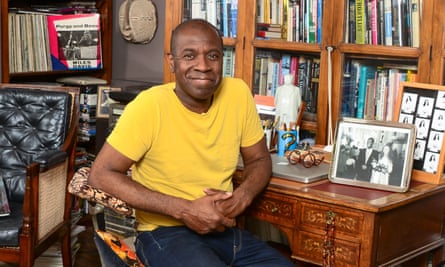
The Interesting Narrative of the Life of Olaudah Equiano: or, Gustavus Vassa, the African by Olaudah Equiano
The writers on my list, spanning a period of almost 250 years, represent the diversity of the black experience in Britain. It is a voice that speaks of pain, sadness, anger and joy across different genres. We start in 1789, with this book, which is much more than a slave narrative. True, Equiano had been a commodity, but here he is living free in London, becoming a leading abolitionist, reasserting his identity as a black Briton. His bestselling book helped transform public opinion on slavery.
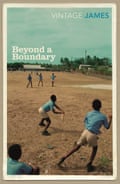
Beyond a Boundary by CLR James
This memoir came out in 1963, the year after my Windrush generation parents moved to Britain from Jamaica. Ostensibly a book about cricket, it’s really about the legacy of empire in the Caribbean and beyond. “What do they know of cricket that only cricket know,” James writes brilliantly.
Selected poems by Linton Kwesi Johnson
Johnson uses poetry as a political weapon, chronicling the experience of marginalised young black men in Britain in the 1970s and 80s. The poem Sonny’s Lettah, for instance, highlights the injustice of police stop-and-search laws that targeted black people in the 80s, and takes the form of a letter written in Sonny’s Jamaican voice from Brixton prison to his mum, after being beaten by police. Part of its power is the spoken voice.
My Name Is Leon by Kit de Waal
Published in 2016, this is one of the saddest books I’ve ever read, and reflects the institutional injustice that is so indicative of the black experience in Britain, in this case a poor mixed-race boy, in the care system.
Black and British: A Forgotten History by David Olusoga
This history from 2015, updated in 2021, was a revelation to me, showing black people have lived in Britain from as early as four decades after the birth of Christ. The book stridently points out that the black British narrative is rich and varied, and that black people have a rightful claim to the story of these islands.
Kit de Waal
Novelist
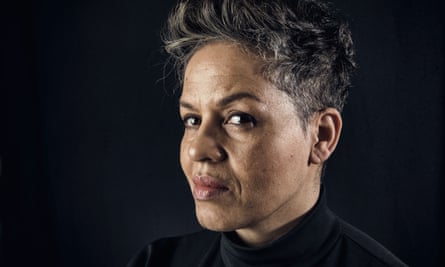
Inglan Is a Bitch by Linton Kwesi Johnson
For me, thinking about Windrush starts with Linton Kwesi Johnson’s dub poetry. This collection is not speaking to the hopes of men like my father, sailing to the motherland with a British passport and dreams of jobs, houses and plenty, an expectation of acceptance and homecoming however; what Inglan Is a Bitch talks to is the reality that my generation kicked against in the 1970s and 80s.

Every Light in the House Burnin’ by Andrea Levy
No list would be complete without Levy’s debut novel – an articulation with wit, humour and authenticity of dashed hopes and the bite of disappointment.
Natives: Race & Class in the Ruins of Empire by Akala
An important book that contextualises where we are now and where the Windrush generation stands on the timeline of empire and the abuse of their goodwill.
The New Age of Empire: How Racism and Colonialism Still Rule the World by Kehinde Andrews
This 500-year history of racial capitalism tells it like it is and continues the tradition of black radical writing – angry, yes, and why not?
Travis Alabanza
Artist and writer
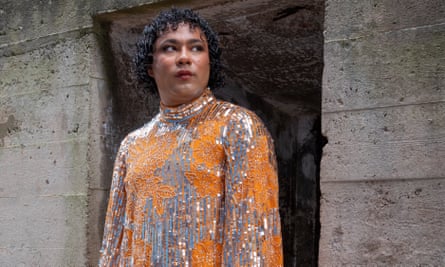
The Black Flamingo by Dean Atta
There are certain books you read and you wish you could travel back in time so your younger self could have them. Black Flamingo is one those books. This YA novel in verse, about finding yourself and your queer expression, has cemented itself into the modern canon.
Poor by Caleb Femi
This Forward prize-winning collection of poetry and photography about Femi’s childhood on the North Peckham estate and the lives of young black men in the 21st century is one I continue to recommend to so many different people in my life. Femi created something special, needed, and with words that you want to highlight over and over again.
Patrice Lawrence
Writer and journalist

Mother Country: Britain’s Black Community on the Home Front 1939-45 by Stephen Bourne
I grew up in Sussex, too brown-skinned to be English and too lacking in British Caribbean cultural identifiers to feel Black. With no Black community to shape me, books helped me find my own identity. Mum grew up in colonial Trinidad – and we learned exactly the same empire-tinged histories at school. Black people were either enslaved, saved or ignored. Stephen Bourne’s Mother Country celebrates the lives of Black people – the air raid wardens, the stretcher bearers and many more – systematically erased from mainstream British war narratives.
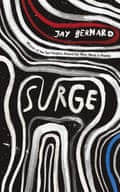
Black by Design: A 2-Tone Memoir by Pauline Black
Two-Tone emerged as I started secondary school; catchy, political, blokey. Pauline Black’s memoir is an honest, funny and occasionally shocking account of transracial adoption, 1960s Essex, 1970s Midlands and forging a powerful musical and personal identity through an anti-racist movement as the front woman of the Selecter.
Surge by Jay Bernard
In 1981 13 young Black people were killed in a house fire in New Cross, south-east London. A survivor died after taking his own life two years later, aged 20. How the fire started has never been determined. The media was mostly hostile, national sympathy nonexistent, the survivors and bereaved families treated appallingly. Jay Bernard’s furious and heartbreaking poetry collection is their response to this outrageous tragedy. Read and feel rage.
Pig-Heart Boy by Malorie Blackman
I discovered this children’s book when I was 32. I had never read one with Black British characters before. I had never written a story with Black British characters before. A door opened for me and I found my voice.
Sharmaine Lovegrove
Publisher
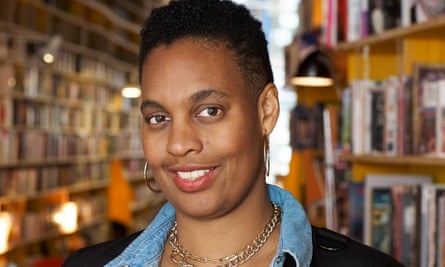
There Ain’t No Black in the Union Jack by Paul Gilroy
My four grandparents came to the UK with hope as part of the Windrush generation, and what has played out is truly harrowing. I first read this book as a teenager and was struck by Gilroy’s account of the radical racial division of modern Britain and the culpability of many across society. I think of it daily because sadly it’s as relevant today as it was when it was published in 1987.
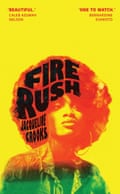
Fire Rush by Jacqueline Crooks
An ode to female power and the draw of basslines as a fundamental form of expression. Love, police brutality and raving are huge parts of urban Black culture, and this brilliant debut perfectly showcases the challenges and celebrations of Jamaican British youth.
Rainbow Milk by Paul Mendez
I am so proud to have published this novel. With its multigenerational twist and beautiful patois, Jesse’s story of seeking love and acceptance resonates with so many and emboldens me to publish stories where those who are isolated can feel seen.
Black Teacher by Beryl Gilroy
An inspirational account of a pioneering teacher who is a passionate, tireless and nurturing advocate of students within a British education system that is intent on structural oppression. It’s a heartbreaking and hopeful memoir full of ire and love.
Jeffrey Boakye
Educator, writer and broadcaster
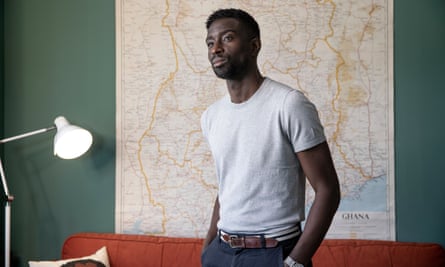
Wish We Knew What to Say: Talking With Children About Race by Pragya Agarwal
One of the most common phrases I hear from people struggling to go forward in tackling racism is “I’m scared of getting it wrong”. Pragya Agarwal shapes a remarkably accessible guide about how to approach conversations of race and identity with children and young people.
Consumed: The Need for Collective Change; Colonialism, Climate Change & Consumerism by Aja Barber
A knowledgable, deeply insightful interrogation of modern consumerism and its various intersections with colonialism, climate change and identity.
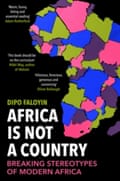
Africa Is Not a Country: Breaking Stereotypes of Modern Africa by Dipo Faloyin
An exhilarating journey through the myths, misconceptions and stereotypes of modern Africa. This book is the history lesson that we all need, to understand the damage that has been done by legacies of white supremacy affecting African nations and the whole world.
The Good Ally: A Guided Anti-racism Journey from Bystander to Changemaker by Nova Reid
Reid has all the generosity and wisdom of an expert coach as she guides you along your personal anti-racist journey.
Black British Lives Matter: A Clarion Call for Equality edited by Lenny Henry and Marcus Ryder
A collection that gives voice to perspectives across various sectors and institutions. The book offers vital insights into the experiences of black individuals and communities, helping to illuminate the truth about how racism exists, and persists in modern society.
Louise Hare
Novelist
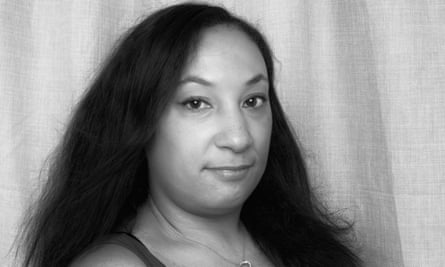
To Sir, With Love by ER Braithwaite
I’ve long been fascinated by the concept of the “good immigrant”, that person who is considered foreign but as long as they’re doing something good for the country, they’re allowed to stay. ER Braithwaite’s semi-autobiographical novel is the perfect example: a highly educated RAF pilot, Braithwaite found it impossible to get work in his chosen field after the second world war, when he was expected to politely go back to where he’d come from.
The Fortune Men by Nadifa Mohamed
Mahmood Mattan, unfortunate protagonist of Mohamed’s award-winning novel is many things: a gambler, a thief, a terrible husband. But he’s not guilty of the murder of a shopkeeper in Cardiff, of which he’s accused in 1952. Mattan’s story is grounded in tragic reality, with South Wales police only last year issuing an apology to his family.
Mother Country: Real Stories of the Windrush Children edited by Charlie Brinkhurst-Cuff
Real life stories from those who came to the UK, the “mother country”, expecting a warm welcome that never materialised – and from their children and grandchildren.
Chi-chi Nwanoku
Founder of the Chineke! Orchestra
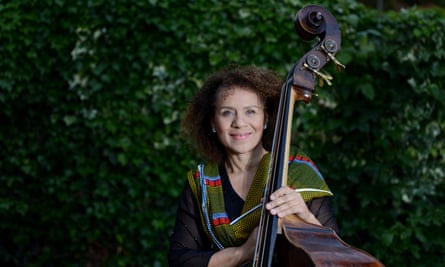
Why I’m No Longer Talking to White People About Race by Reni Eddo-Lodge
A thought-provoking book that challenges readers to think critically about race and racism in the UK. The author’s insights into the experiences of black people are both personal and powerful.
Black Shamrocks: Accommodation Available – No Blacks, No Dogs, No Irish by Gus Nwanokwu
Nwanokwu’s memoir offers a personal and emotional insight into the challenges of navigating two cultures and the systemic racism and discrimination faced by black and Irish people in the UK. Through his story, Nwanokwu reminds us of the strength and resilience of the Windrush generation and their descendants.
Coming to England: An Inspiring True Story Celebrating the Windrush Generation
by Floella Benjamin
A memoir written for children that provides an accessible and relatable account of the Windrush generation’s experiences. It’s a personal and heartfelt story that offers a valuable resource for parents and teachers to educate children about the importance of diversity and inclusion.
Tomiwa Owolade
Writer and critic
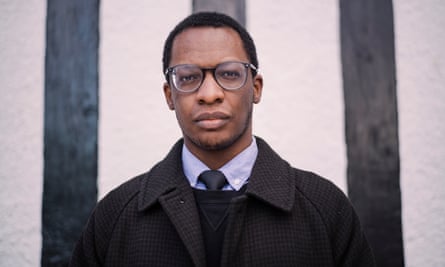
Ordinary People by Diana Evans
A tale of two couples: one living in Crystal Palace, the other in the commuter belt. The novel is a rich evocation of south London, a poignant account of a dwindling marriage and a lovely celebration of music.
Windrush: The Irresistible Rise of Multi-Racial Britain by Mike Phillips and Trevor Phillips
A landmark book on black British history. Politicians, activists, comedians, musicians, academics, broadcasters, poets and non-famous citizens give a compelling account of what it was like to live in Britain as a black person in those 50 years after the second world war. The book is being rereleased this year.
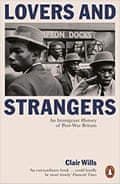
Lovers and Strangers: An Immigrant History of Post-War Britain by Clair Wills
This is a fascinating and moving account of the various immigrant communities that moved to Britain after the second world war. It includes European migrants, Asian people and the group who arrived in the largest number in the 1950s: Irish people.
Bloody Foreigners: The Story of Immigration to Britain by Robert Winder
Black communities fall under the spotlight in this wonderfully wide-ranging account of immigration in Britain.
Second-class Citizen by Buchi Emecheta
A powerful novel about a Nigerian woman who migrates to Britain in the 1960s. Emecheta is little known today, but she was deservedly included on the famous 1983 Granta list of 20 young novelists to look out for. And she deserves to be better known now.
Dreda Say Mitchell
Novelist, broadcaster and campaigner
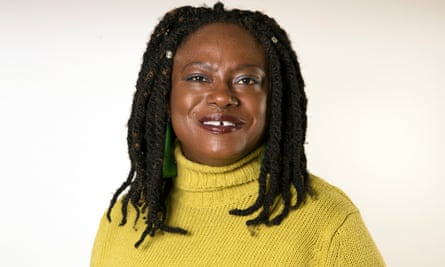
Angel by Merle Collins
I have always been drawn to the work of this poet and novelist because of our shared Grenadian heritage. Her debut novel beautifully captures the life of the people on the island, taking readers beyond the spice and rum to its dark and turbulent political and social history.
Yardie by Victor Headley
This debut novel took the young East End Caribbean community I lived in – and me – by storm when it was published in 1992. It is unapologetic about its gangland grit, fast and furious pace and celebration of Caribbean language systems in the dialogue of its characters. Released by X Press, one of the first Black British publishers.
Until Proven Innocent by Nicola Williams
Williams’s second novel is a brilliant and tense drama about legal justice that propels us well beyond the courtroom and right into the heart of a troubled community and its people. And the Black female barrister who straddles both worlds.
Lavinya Stennett
Writer and founder of The Black Curriculum
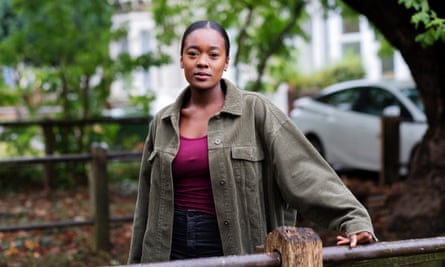
Dreaming in a Nightmare: Inequality and What We Can Do About It by Jeremiah Emmanuel
A memoir by the inspirational entrepreneur who started his first charity as a teenager. While reflecting on the social conditions of his London childhood he pays tribute to his Nigerian-born single mother, Esther. This is one for everyone who needs a reminder to embrace and appreciate their personal past and the past conditions of the communities they were born into. At the heart of Jeremiah’s work is community belief and that’s the hope that I think the Windrush community had – and the hope that will sustain us going forward. As Emmanuel writes, the book is “a guide to recognising the nightmare” of our unequal society, “and a blueprint for dreaming your way out of it”.
Inside the Invisible: Memorialising Slavery and Freedom in the Life and Works of Lubaina Himid by Lubaina Himid, Celeste-Marie Bernier, Alan Rice and Hannah Durkin
Himid’s deft ability to link her artistic and academic gifts bridges a body of information that we take for granted: cultural visibility. Her work takes the stories of black men and women who have been systematically erased and makes them raw and visually accessible. Looking through these pages makes me ask why we do not currently use art – and this book specifically – to teach history.
Luan Goldie
Educator and writer
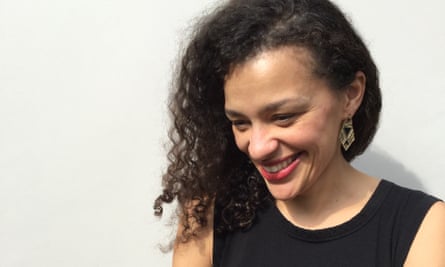
Society Within by Courttia Newland
The first book I read that featured people like me: black and brown council estate kids. It buzzed with energy and I think I read most of it with my mouth open, shocked to see our language and culture so authentically represented in literature.
Mr Loverman by Bernardine Evaristo
Growing up in Hackney, east London, I was endlessly curious about those older West Indian men, the ones who were always sharply dressed and never had time for my nosy questions of “How did you end up coming here?” So, I loved this novel. Barrington is flamboyant, complex and in love with his childhood friend Morris. It really makes you think of all the stories, forbidden and forgotten, from the elders who made England their home.
This Lovely City by Louise Hare
A hugely atmospheric murder mystery set in postwar London. It follows jazz musician Lawrie, who previously arrived on Windrush, and Evi, a mixed-race British woman with a complicated home situation. These two run into wall after wall of racism. But ultimately, it’s a story that sings with love, hope and community.
On Beauty by Zadie Smith
The tale of a mixed-race British American family in conflict with another family of opposing sensibilities. As with all Smith’s work, it’s smart, funny and a masterclass in the complexities of identity.
Paul Boateng
Member of the House of Lords and vice president of the London Library

Letters of the Late Ignatius Sancho, an African edited by Vincent Carretta
We Black British are a diaspora people. The history, culture, and indeed language of these islands reflects an imperial past and a complex web of shared global experiences that makes us all – regardless of ethnicity – who we are. The docking of the Empire Windrush at Tilbury was an episode in a continuing story. Our community’s literary influences and my own choices reflect that. The first known Black elector to the Westminster Parliament was Ignatius Sancho and his letters, written in the second half of the 18th century, are a paean to resilience.
How Europe Underdeveloped Africa by Walter Rodney
I first encountered Rodney’s book at Bogle-L’Ouverture Bookshop. Alongside Grass Roots Bookstore, also in London, this groundbreaking literary powerhouse performed a vital function in resistance to institutional racism. It was here you could, for instance, also learn of Marcus Garvey whose philosophy of pride in Africa affected reggae music and a generation starved of positive references to the continent.
The Two Hearts of Kwasi Boachi by Arthur Japin
This book charts the tragedy, comedy and complexity of the encounter between Europe and Africa based on the real life story of a kidnapped African princeling in the 19th century.
People Like Us: What It Takes to Make It in Modern Britain by Hashi Mohamed
The reality of the struggles of a new generation of refugees to overcome the obstacles to social mobility is exposed by the young lawyer in People Like Us.
Every Tribe: Stories of Diverse Saints Serving a Diverse World edited by Sharon Prentis
I chose this book because we, the African diaspora, have been sustained by the life of the spirit. St Augustine who was, after all, from Africa reminds us: “Hope has two beautiful daughters; Anger at the way things are and the Courage to change them.” Books give us hope!

